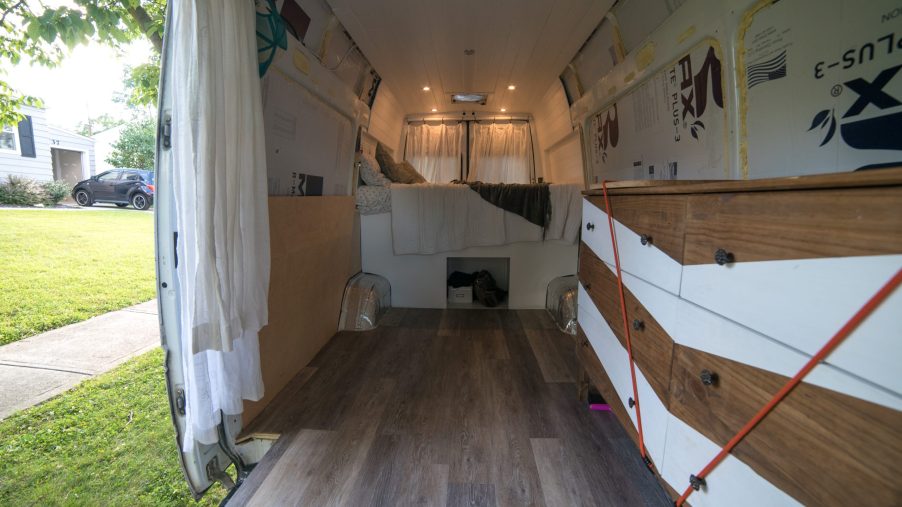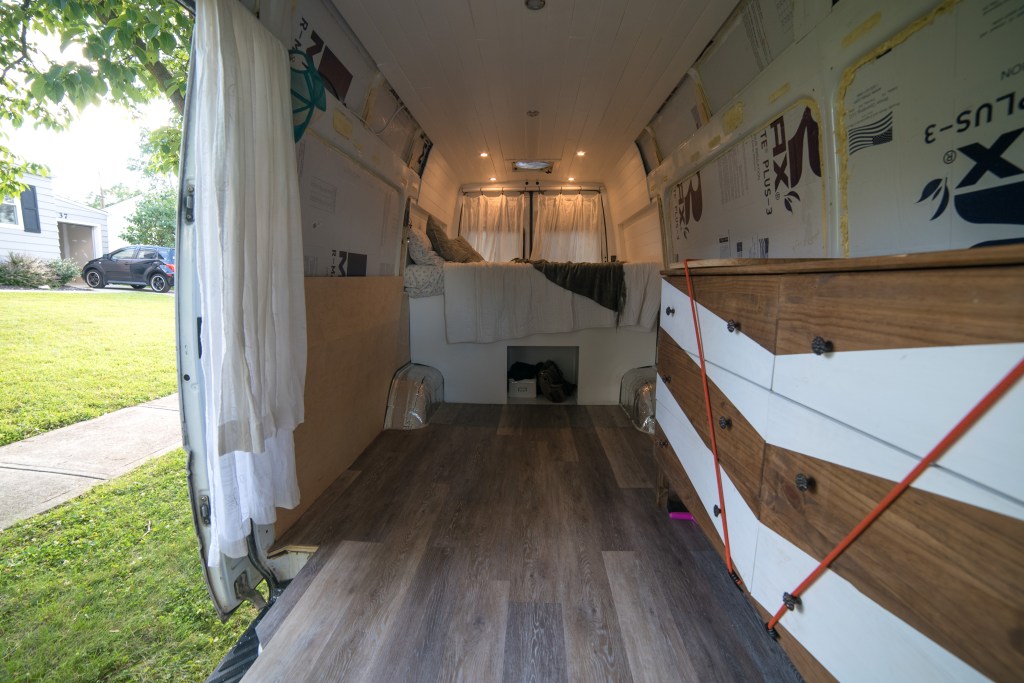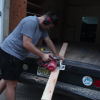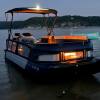
Before Deciding on Your Camper Van Layout Consider These Factors
Due to the Coronavirus (COVID-19) pandemic, a lot of people are now interested in camping, and this can be a good thing for the camper van industry. While people can buy a camper van off the lot, people can also choose to build their own. Here’s a look at things people need to consider before doing just that.
Choosing the right van to convert
According to RVing Know How, one of the most important steps before you convert your van into a camper van is to choose the right van in the first place. This is because different van sizes will affect the layout of the camper van after you’re done converting it. One of the most important sizes to consider, however, is how tall the van is.
A taller van will mean more space, but it also has its own trade-offs. For example, a van that is tall enough for a person to stand up straight in may be a comfortable camper van, but it could also be unwieldy when you’re in the city. With a tall van, it could make it difficult to use drive-thrus, car washes, or parking garages, according to RVing Know How.
A shorter van has its own advantages and disadvantages, too. For instance, since a shorter van will probably be lighter, it’ll also likely have a better fuel economy. But of course, a shorter van means you likely won’t be able to stand up straight in it. That said, choosing the right van has many other considerations, too.
Where are you going to take your camper van?

As RVing Know How wrote, location matters a lot when it comes to picking the right van. Many camper vans will go camping, and if that camping happens at a national park, then a shorter van will do just fine.
However, if you’re planning on taking your camper van to a location that can get really cold or rainy, then a taller van may be a better idea. A taller van is a more comfortable place to stay around in for long stretches of time, and that’s exactly what will happen if you take your camper van to a cold or rainy place.
And then there’s the stealth camping possibility. Some folks may want to use their camper van to stealth camp in cities. While both types of camper vans will do fine in this situation, a smaller van is generally a better idea since it won’t have issues with drive-thrus or car washes. That said, these considerations are part of another larger consideration that people will need to make.
What lifestyle are you planning to have?
Ultimately, when designing and building your camper van, the main thing to think about is what type of lifestyle you’re planning to lead with it, according to RVing Know How. If you plan on using your camper van alone or with a partner, then a smaller van is good enough. But if you want to take your whole family with you, then you’ll probably need a bigger van.
And then there’s the question of what you’re actually using your camper van for. There are many reasons why people have a camper van, and each reason will mean a different layout for the camper van. For example, a camper van meant for families will likely need to have facilities for everyone.
And of course, there’s always cost. Some folks may build a camper van to live off the grid, and that often means doing things on a budget. A smaller van would be ideal for that, but there would also be layout changes for a lower-budget build. A camper van meant for more recreational purposes may have more luxurious facilities, and as a result, while it’d cost more, it would probably be more comfortable.
Being honest about your needs and must-haves will go a long way to ensuring you don’t regret your camper van layout.



